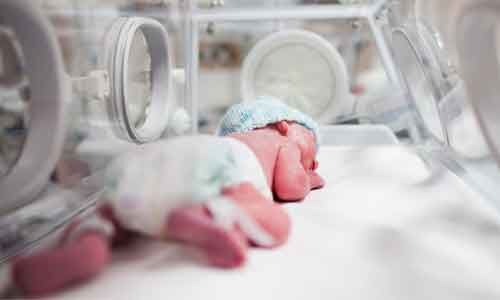- Home
- Medical news & Guidelines
- Anesthesiology
- Cardiology and CTVS
- Critical Care
- Dentistry
- Dermatology
- Diabetes and Endocrinology
- ENT
- Gastroenterology
- Medicine
- Nephrology
- Neurology
- Obstretics-Gynaecology
- Oncology
- Ophthalmology
- Orthopaedics
- Pediatrics-Neonatology
- Psychiatry
- Pulmonology
- Radiology
- Surgery
- Urology
- Laboratory Medicine
- Diet
- Nursing
- Paramedical
- Physiotherapy
- Health news
- Fact Check
- Bone Health Fact Check
- Brain Health Fact Check
- Cancer Related Fact Check
- Child Care Fact Check
- Dental and oral health fact check
- Diabetes and metabolic health fact check
- Diet and Nutrition Fact Check
- Eye and ENT Care Fact Check
- Fitness fact check
- Gut health fact check
- Heart health fact check
- Kidney health fact check
- Medical education fact check
- Men's health fact check
- Respiratory fact check
- Skin and hair care fact check
- Vaccine and Immunization fact check
- Women's health fact check
- AYUSH
- State News
- Andaman and Nicobar Islands
- Andhra Pradesh
- Arunachal Pradesh
- Assam
- Bihar
- Chandigarh
- Chattisgarh
- Dadra and Nagar Haveli
- Daman and Diu
- Delhi
- Goa
- Gujarat
- Haryana
- Himachal Pradesh
- Jammu & Kashmir
- Jharkhand
- Karnataka
- Kerala
- Ladakh
- Lakshadweep
- Madhya Pradesh
- Maharashtra
- Manipur
- Meghalaya
- Mizoram
- Nagaland
- Odisha
- Puducherry
- Punjab
- Rajasthan
- Sikkim
- Tamil Nadu
- Telangana
- Tripura
- Uttar Pradesh
- Uttrakhand
- West Bengal
- Medical Education
- Industry
In preterm infants, neonatal deaths correlate with gestational age at birth, finds JAMA study

USA: A cohort study in JAMA Network Open involving nearly 100 preterm infants, found that mortality risk decreased with increased gestational age and number of days of life, in a fashion comparable to postmenstrual age. Further, common causes of neonatal mortality include pulmonary hemorrhage, respiratory distress/failure, intracranial hemorrhage, sepsis, necrotizing enterocolitis, and sudden unexplained death.
The findings imply that prognostication for extremely preterm infants should take into consideration both gestational and postnatal age. In simpler words, this information may be useful to include in the counseling of families concerning the prognosis of survival.
It is important to understand why and how extremely preterm infants die for practitioners caring for these infants. Considering this, Sandra E. Juul, Division of Neonatology, Department of Pediatrics, University of Washington, Seattle, and colleagues aimed to examine risk factors, causes, timing, and circumstances of death in a modern cohort of extremely preterm infants (infants born at 24 0/7 to 27 6/7 weeks of gestation).
For this purpose, the researchers conducted a retrospective cohort review of infants who were enrolled in the Preterm Erythropoietin Neuroprotection Trial between December 13, 2013, and September 26, 2016. The study included a total of 941 infants born between 24 0/7 and 27 6/7 weeks of gestation enrolled at 19 US sites. The data was analyzed from October 16, 2020, to December 1, 2021.
Given below are the study's key findings:
· Of the 941 enrolled infants, 108 died (11%) before hospital discharge: 38% (n = 41) at 24 weeks gestation, 30% (n = 32) at 25 weeks gestation, 19% (n = 20) at 26 weeks gestation, and 14% (n = 15) at 27 weeks gestation.
· An additional 9 infants (1%) died following hospital discharge.
· In descending order, the primary causes of death included respiratory distress or failure, pulmonary hemorrhage, necrotizing enterocolitis, catastrophic intracranial hemorrhage, sepsis, and sudden unexplained death.
· Fifty percent of deaths occurred within the first 10 days after birth.
· The risk of death decreased with day of life and postmenstrual age such that an infant born at 24 weeks' gestation who survived 14 days had the same risk of death as an infant born at 27 weeks gestation: conditional proportional risk of death, 0.08 vs 0.06.
· Preterm labor was associated with a decreased hazard of death (hazard ratio [HR], 0.45).
· Infant clinical factors associated with death included birth weight below the tenth percentile for gestational age (HR, 2.11),
· Apgar score less than 5 at 5 minutes (HR, 2.19), sick appearance at birth (HR, 2.49), grade 2b-3 necrotizing enterocolitis (HR, 7.41), pulmonary hemorrhage (HR, 10.0), severe intracranial hemorrhage (HR, 4.60), and severe sepsis (HR, 4.93).
· Fifty-one percent of the infants received comfort care before death.
"We noted an association between mortality and gestational age at birth; however, for each week that an infant survived, their risk of subsequent death approximated the risk observed in infants born 1 to 2 weeks later, suggesting the importance of postmenstrual age of the infant," the researchers wrote.
"This information may be useful to include in counseling of families regarding the prognosis of survival," they concluded.
Reference:
Juul SE, Wood TR, Comstock BA, et al. Deaths in a Modern Cohort of Extremely Preterm Infants From the Preterm Erythropoietin Neuroprotection Trial. JAMA Netw Open. 2022;5(2):e2146404. doi:10.1001/jamanetworkopen.2021.46404
Dr Kamal Kant Kohli-MBBS, DTCD- a chest specialist with more than 30 years of practice and a flair for writing clinical articles, Dr Kamal Kant Kohli joined Medical Dialogues as a Chief Editor of Medical News. Besides writing articles, as an editor, he proofreads and verifies all the medical content published on Medical Dialogues including those coming from journals, studies,medical conferences,guidelines etc. Email: drkohli@medicaldialogues.in. Contact no. 011-43720751


